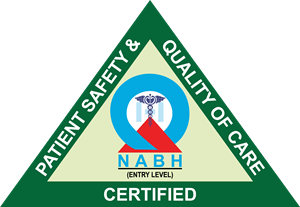Endometriosis is a chronic medical condition that affects individuals with female reproductive systems. It occurs when tissue resembling the uterine lining (endometrium) grows outside the uterus, often in the pelvic region, but can spread to other parts of the body. Endometriosis can lead to severe pain, irregular menstrual cycles, and infertility. Many people wonder whether endometriosis worsens with age and what the best endometriosis treatment in Delhi is to manage the condition effectively.
Sunrise Hospital is the best hospital for endometriosis treatment in Delhi, offering advanced medical solutions and renowned surgeons specializing in endometriosis surgery.
Does Endometriosis Get Worse with Age?
Understanding the Progression of Endometriosis
The progression of endometriosis varies from person to person. Some individuals may experience a decrease in symptoms as they age, particularly post-menopause, due to the decline in estrogen and progesterone levels. However, for others, endometriosis may intensify over time, causing increased pain and complications.
Factors Influencing Endometriosis Progression
Several factors contribute to the progression of endometriosis, including:
- Hormonal Fluctuations: Since endometriosis is hormone-dependent, fluctuations in estrogen and progesterone levels can influence its growth.
- Genetic Predisposition: A family history of endometriosis increases the likelihood of more severe progression.
- Extent of Tissue Growth: The severity of the condition does not always correlate with pain levels. Some individuals with minimal endometriosis experience extreme pain, while others with extensive tissue growth may have mild symptoms.
Can Endometriosis Get Worse Over Time?
For some individuals, endometriosis can lead to:
- Increased pelvic pain and discomfort
- More frequent and intense menstrual cramps
- Greater difficulty in conceiving
- Development of adhesions and scar tissue
- Increased risk of cyst formation (endometriomas)
Options for Best Endometriosis Treatment in Delhi
Managing Endometriosis Effectively
Treatment for endometriosis focuses on symptom relief, slowing its progression, and improving the patient’s quality of life. The best treatment plan depends on the severity of the condition, age, reproductive goals, and overall health.
1. Pain Management
Pain relief is often the first step in managing endometriosis symptoms. Common options include:
- Nonsteroidal Anti-inflammatory Drugs (NSAIDs): Over-the-counter pain relievers like ibuprofen help reduce inflammation and pain.
- Prescription Pain Medications: In severe cases, doctors may prescribe stronger pain relievers to manage symptoms effectively.
2. Hormonal Therapy
Hormonal treatments help regulate or suppress the growth of endometrial tissue. Options include:
- Birth Control Pills: Combined hormonal contraceptives can reduce menstrual pain and slow tissue growth.
- Hormonal Intrauterine Devices (IUDs): Devices like the Mirena IUD release progestin to help control symptoms.
- Progestin Therapy: Pills, injections, or implants can stop menstrual cycles and alleviate pain.
- Gonadotropin-Releasing Hormone (GnRH) Agonists: These medications induce a temporary menopausal state, reducing estrogen levels and endometrial growth.
3. Surgical Treatment
For individuals with severe endometriosis, surgical intervention may be necessary.
- Laparoscopic Surgery: A minimally invasive procedure that removes endometrial tissue, cysts, and scar tissue to relieve pain and improve fertility.
- Hysterectomy: In extreme cases, removing the uterus (and sometimes the ovaries) may be considered as a last resort. However, this results in permanent infertility and is typically recommended only when other treatments fail.
4. Complementary Therapies
Some individuals find relief through holistic approaches, such as:
- Acupuncture: Helps reduce pain and inflammation.
- Dietary Modifications: A balanced diet rich in anti-inflammatory foods can help manage symptoms.
- Physical Therapy: Pelvic floor therapy can reduce pain and improve mobility.
5. Lifestyle and Home Remedies
Incorporating healthy habits can improve overall well-being and help manage endometriosis symptoms:
- Regular Exercise: Helps reduce estrogen levels and alleviate pain.
- Stress Management: Practices like yoga and meditation can lower stress and pain sensitivity.
- Adequate Sleep: Ensures proper hormonal balance and pain management.
6. Fertility Preservation
For individuals concerned about fertility, options such as egg freezing or in vitro fertilization (IVF) can help preserve reproductive potential.
Seeking the Best Endometriosis Treatment in Delhi
Endometriosis does not necessarily worsen with age, but its progression varies among individuals. The key to managing this condition lies in early diagnosis, a personalized treatment approach, and regular consultation with healthcare providers.
Conclusion
At Sunrise Hospital, we offer the best treatment for endometriosis in Delhi, with advanced surgical procedures and expert medical care. If you suspect you have endometriosis or are experiencing symptoms, seek medical advice promptly to explore your treatment options and improve your quality of life.
By taking proactive steps, individuals with endometriosis can find relief, preserve fertility, and enhance their overall well-being.
For More Info – Meet Our Best Endometriosis Specialist in India


